91% of Americans Partially or Completely Disagree With Censorship
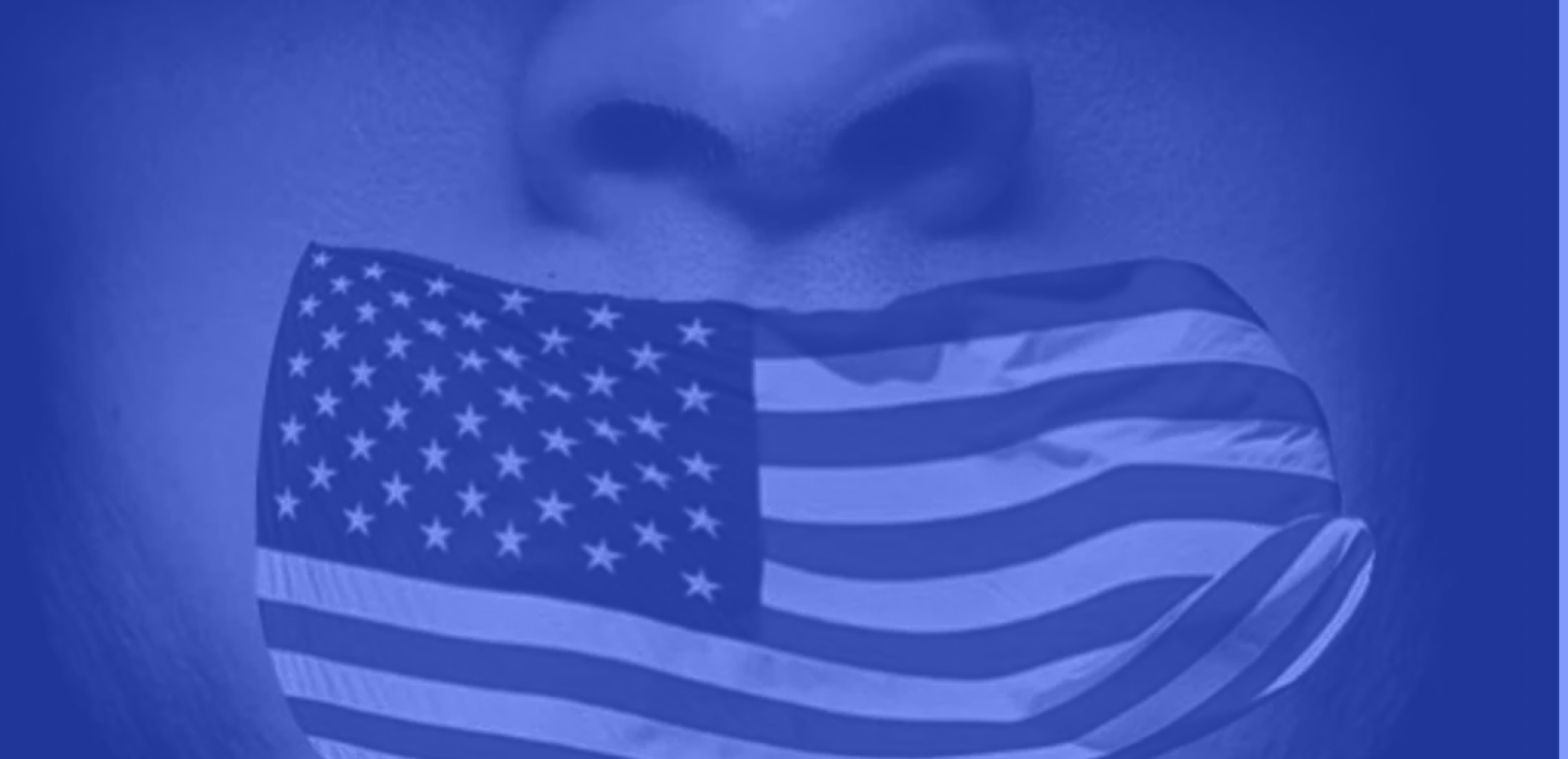
Americans have strong opinions when it comes to the topic of censorship, and what should or should not be allowed as free speech. With rising racial tensions, political differences and the proliferation of “fake news”, Brado used Realtime Polling to survey 1462 people in the US to find out their opinions on censorship, what should be censored or not and who, if anyone, should have control over censorship.
Highlights
- 59% feel censorship in the US is out of control.
- 91% partially or completely disagree with censorship.
- 66% of the respondents censor themselves in their own communications.
- 46% say no one should have the power to censor, and only 14% believe the government should have power to do so.
Results
When asked how people feel about censorship in the US, 59% say it’s unacceptable and out of control. 25% say it’s acceptable but approaching unacceptable levels, and only 16% feel it’s acceptable and appropriate for the times.
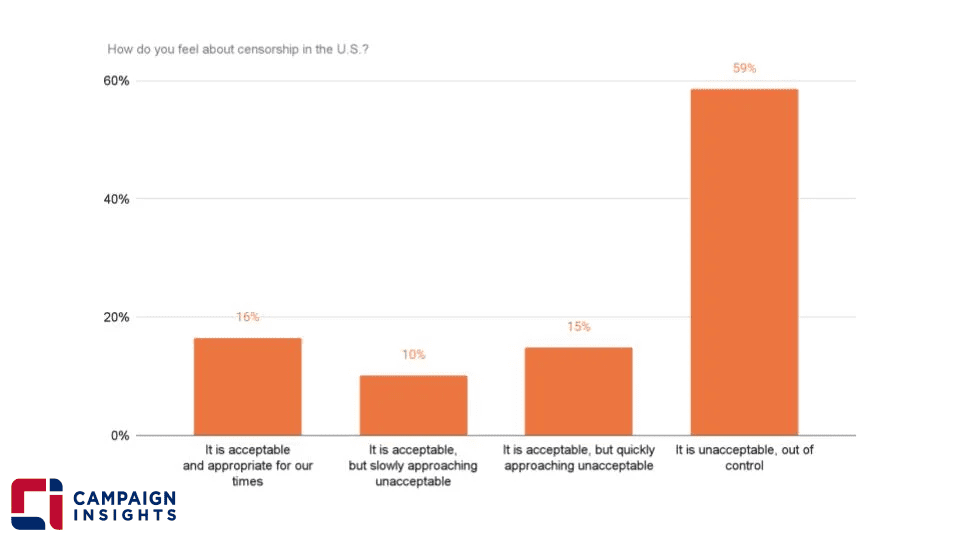
When asked what role people feel censorship should play in the US, 52% said there should be no censorship at all, compared with 38% who said some censorship is okay as long as it’s limited, and only 9% who feel censorship is needed and important.
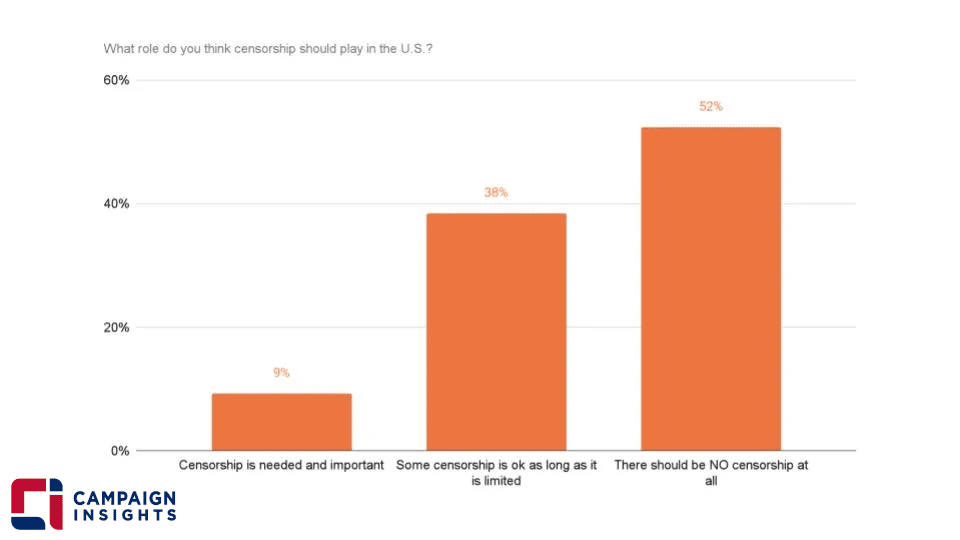
We asked if people censor themselves in their own communication with others, and 66% said they do sometimes or all of the time, whereas 34% said they never censor themselves.
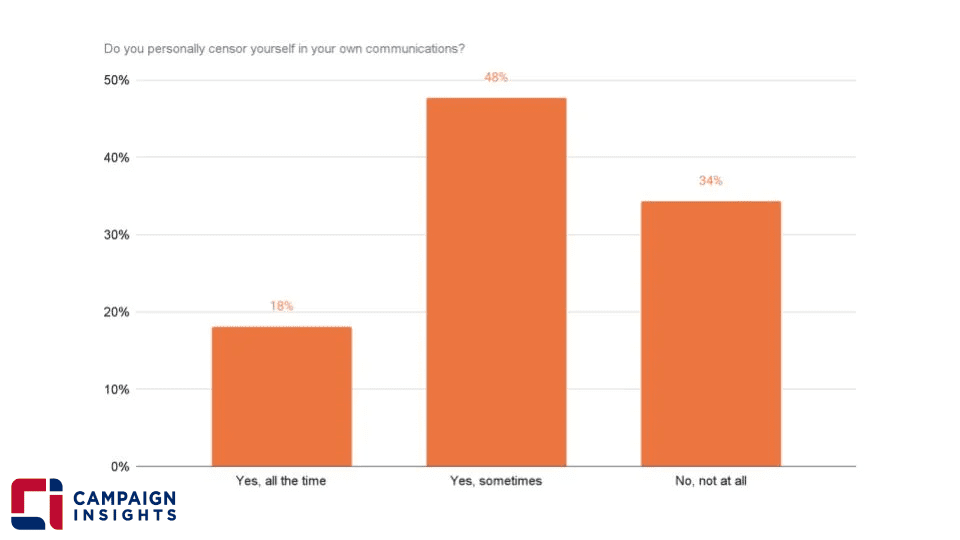
When asked in what situations people censor themselves, 23% said on social media, 18% in email communications, 21% when talking with coworkers, 21% with family and friends, and only 16% said they never censor themselves.
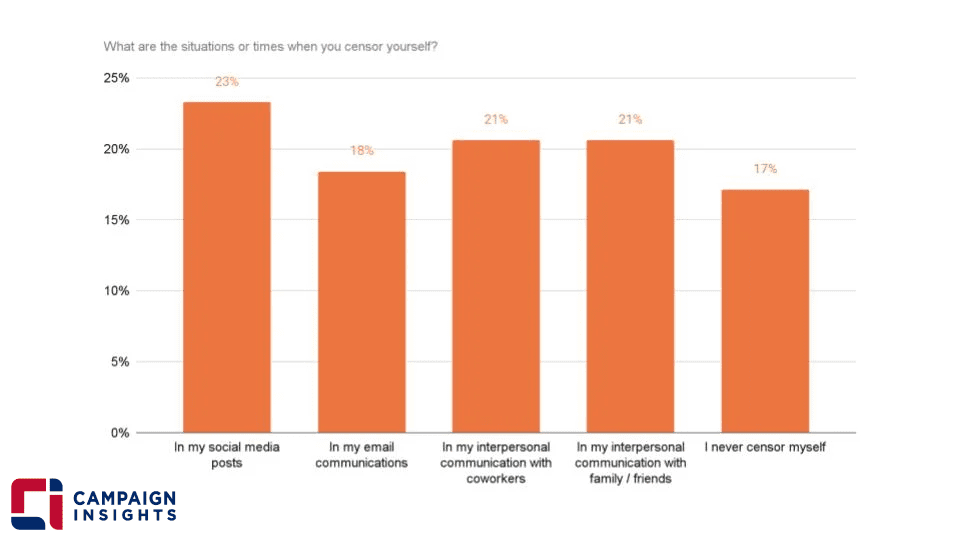
When asked in what situations people feel censorship is most acceptable, people were pretty equally split with 22% saying when violence could be incited, 22% when communications could provide misleading or false information, 20% when communications could discriminate against race, gender or ethnicity, 20% with content that is sexually explicit, and 17% said censorship is never acceptable.
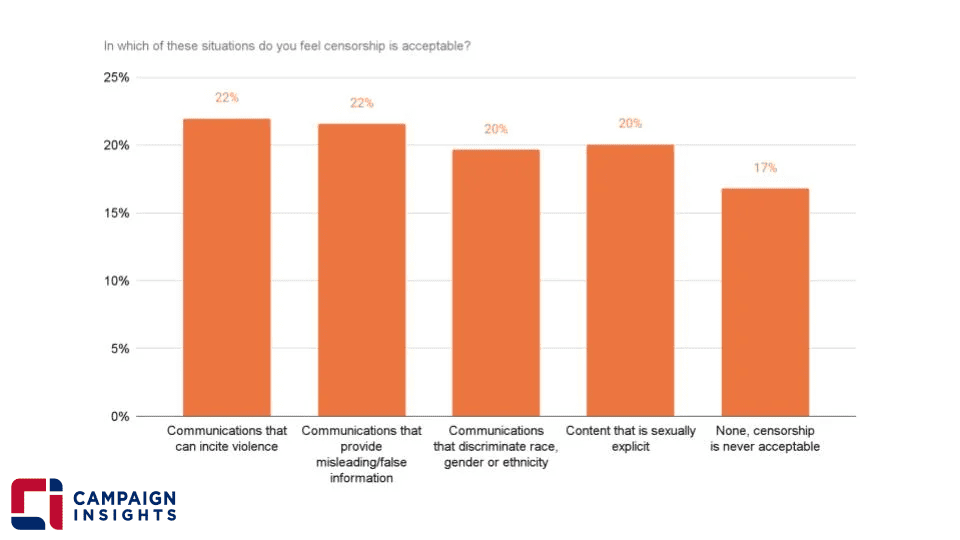
When asked who people thought should have the power to censor things, 46% said that no one has the right to censor anything, followed by 17% who believe social media and tech companies should, 14% saying the government should have censorship power, 13% television and media outlets, and only 10% citing corporations in general.
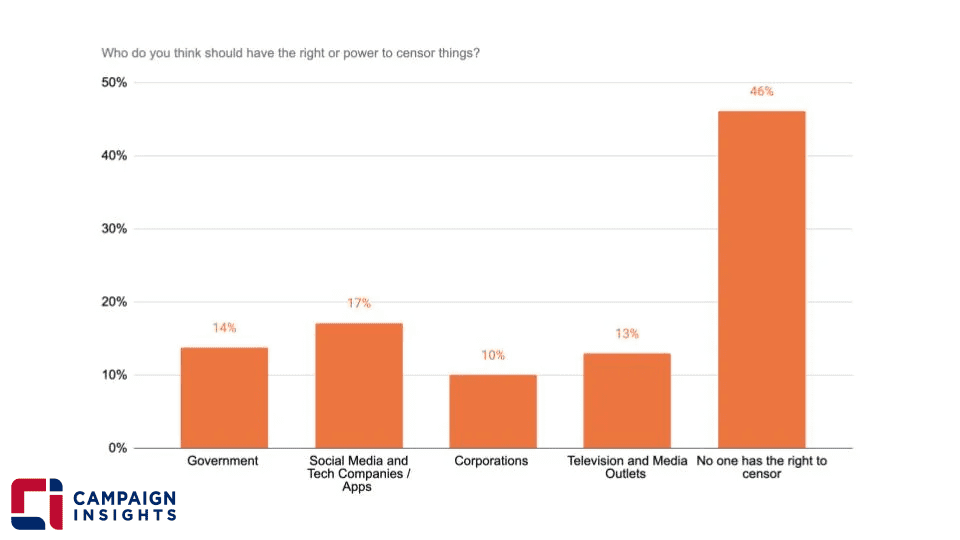
When asked if any of the following should be held to a higher standard, 41% said no compared to 16% who cited government and public officials, 12% cited teachers and educators, 11% cited celebrities and social media influencers, and 10% cited CEOs and company leaders.
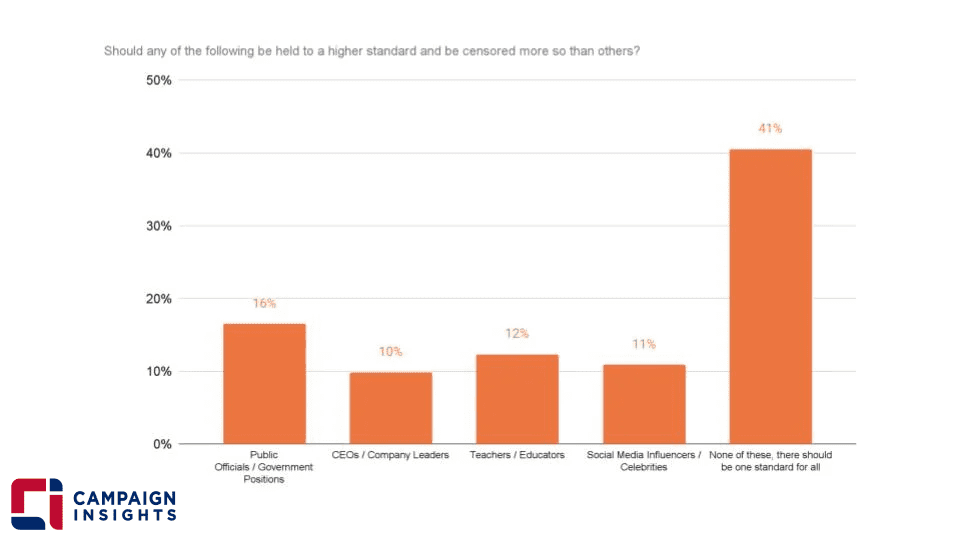
The age of respondents varied greatly with 39% being between ages 18-24, 14% age 25-39, 12% age 40-54, 12% 55-64 and 23% age 65+.
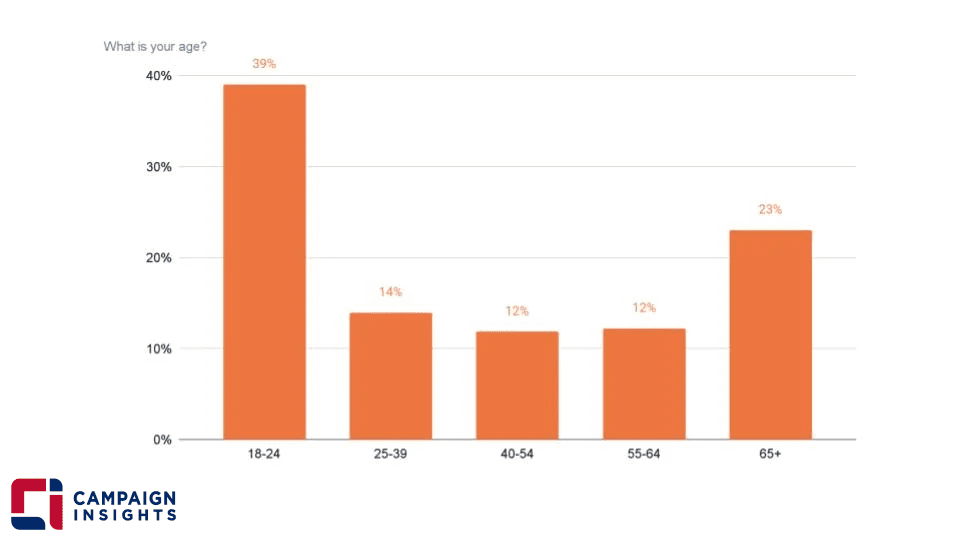
The Process
In June 2021, Brado used Realtime Polling to survey 1462 people located in the US about their opinions on censorship.
Discussion
Based on the survey results, it’s clear most of the respondents do not approve of censorship and do not think information or communications should be censored, by anyone. There were some exceptions to this, with people acknowledging that under certain circumstances, like when violence or discrimination could be incited, or false information could be spread, that in some situations it might be okay to censor information.
Surprisingly to us, most people don’t even feel that the government should be allowed to censor communications, but it’s clear that people feel that individuals in high-profile positions who wield more influence and power should be careful with what they say – not because they have to, but because of inherent bias and the impact they can have on other people’s decisions. People also feel that in certain instances, tech companies and social media should be allowed to censor information. The conclusion we’ve come to is that people recognize the difference between having the right and power to say something, vs. making a good decision on if they should or should not say something, with most people understanding how what we say can impact others.
Campaign Insights’ Realtime Polling surveys differ from traditional online surveys in that the questions are shown to the user on web pages in place of an ad. Unlike Google Surveys, which block access to content until the questions are answered, Realtime Polling surveys are optional, thus ensuring that participants are responding voluntarily.
